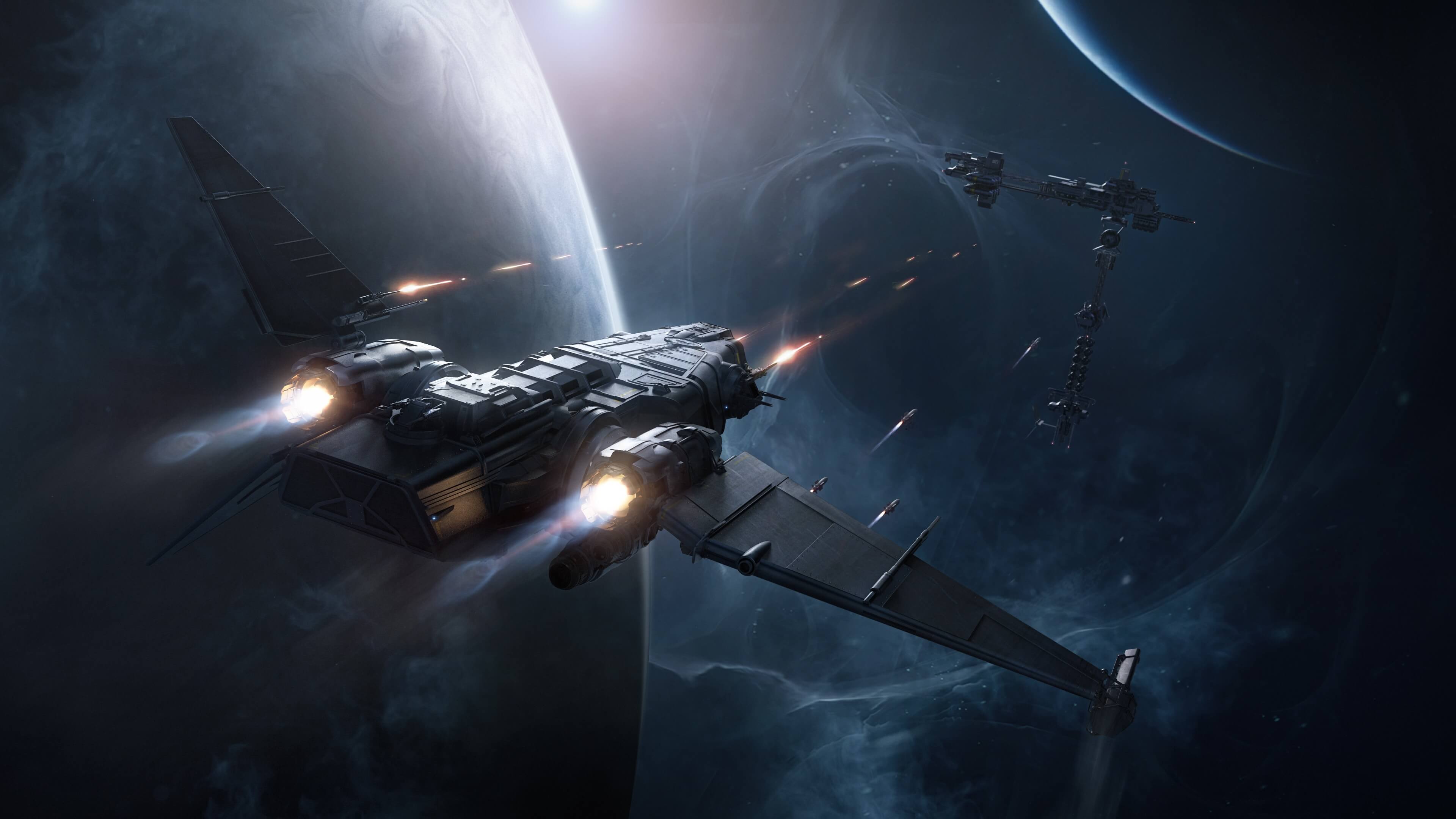It may be because of the popularity of Elite: Dangerous and Star Citizen starting 2012 and their ever-growing high profile status going forward, but the trend of taking players into space has certainly caught on. Recently, I played Rebel Galaxy Outlaw, a prequel to a space sim that released in 2015. After a few hours in it, I could already see its homages to classics in the genre from decades ago like Wing Commander and Freelancer. This game, like so many others that have come along over the past seven years, has taken the genre to a completely new level.
Kickstarter, from its inception, has had a knack for using nostalgia to bring back franchises and genres that faded away as millennials grew up and started having less time for games. As adults that were coming out of an economic slump and building careers, Kickstarter offered an option to fund modern versions of games we used to love. Announcements for Star Citizen and Elite: Dangerous came from the original creators of Wing Commander and Elite games triggering loads of nostalgia for fans. Fans who now had enough disposable income to make these crowdfunded projects immensely successful.
At this same time in 2012, SpaceX was becoming the first private company to send a spacecraft to the International Space Station. They followed this up by completing the technologically and visually impressive task of landing rockets for reuse, bringing an element of science fiction into reality. NASA was not slacking either with the Mars landing of the Curiosity rover and discovering exoplanets now by the hundreds. The idea of space travel and the universe outside of our little bubble hasn’t been so popular since the moon landings.
Today, games like Rebel Galaxy Outlaw, Kerbal Space Program, Stellaris, Astroneer, Surviving Mars, and even the rebounding No Man’s Sky offer a huge variety of different approaches to games set outside of our terrestrial world. Virtually every genre now has a collection of space games for anyone who wants to try their hand roaming the galaxy and being a pioneer.
Games aren’t even the only medium latching on to this growing trend. Star Wars is right in the middle of a new trilogy grossing billions of dollars. Star Trek booted up another series while The Orville, a Star Trek-inspired television series, maintains its run as well. Even more hard-science movies and shows like The Martian and The Expanse are thriving in this space-crazed world. It is truly a great time to be a fan of science fiction set in space.
With all of the games currently in development, the future of space sims is brighter than it’s ever been. While Cloud Imperium Games’ Squadron 42 is tentatively set for a release sometime in the next year or two, other games are joining in on the hype.
Both Kerbal Space Program 2 and Everspace 2 were recently announced at Gamescom and are set to release in the coming years. After 16 years, Homeworld is getting a fourth entry in its franchise off the backs of its remaster and prequel. Even Bethesda is getting in on the action with Starfield – though it’s current status and gameplay are still a mystery. The breadth of available space games is going to be as expansive as their setting.
I’m not sure where my limit is in appreciating this movement, but it’s not in sight at the moment. I still plan to make time for the dozens of games and other media that send me into the stars. The idea of heading out into the frontier of space, building a life on new worlds, and maybe even shooting a few lasers in between is one that I will always find exciting. While I may have been born too early to do it in reality, these games are doing a great job satisfying that desire. Here’s hoping they keep following the trend of getting more robust and entertaining with each iteration.




